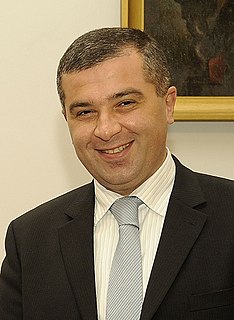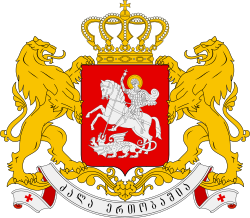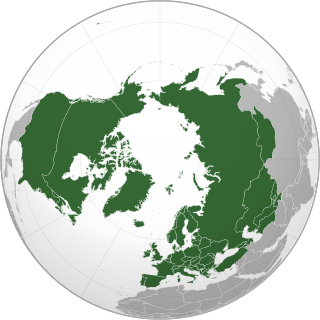
Nino Burjanadze is a Georgian politician and lawyer who served as Chairperson of the Parliament of Georgia from November 2001 to June 2008. As the first woman she has served as the acting head of state of Georgia twice; the first time from 23 November 2003 to 25 January 2004 in the wake of Eduard Shevardnadze's resignation during the Rose Revolution, and again from 25 November 2007 to 20 January 2008, when Mikheil Saakashvili stepped down to rerun in the early presidential elections. She withdrew into opposition to Saakashvili as the leader of the Democratic Movement-United Georgia party in 2008. In October 2013, she ran for president in the October 2013 election. She ran against 22 candidates and ended third with 10 percent of the vote.

Ivane "Vano" Merabishvili is a Georgian politician and former Prime Minister of Georgia from 4 July to 25 October 2012. A former NGO activist, he became directly involved in Georgia's politics in 1999 and emerged as one of the government's most influential members after the 2003 Rose Revolution, especially as Georgia's Minister of Internal Affairs.

Parliamentary elections were held in Georgia on May 21, 2008. President Mikheil Saakashvili proposed a referendum on bringing them forward from October to April after the 2007 Georgian demonstrations. The referendum was held at the same time as the early presidential election on 5 January 2008; according to exit polls, voters were largely in favour of having the elections in spring.

Presidential elections were held in Georgia on 5 January 2008, moved forward from autumn 2008 by President Mikheil Saakashvili after the 2007 demonstrations.

Salome Zourabichvili is a Georgian politician and former French diplomat who currently serves as the 5th President of Georgia, in office since December 2018. She is the first woman to be elected as Georgia's president, a position she will occupy for a term of six years. As a result of constitutional changes coming into effect in 2024, Zourabichvili is expected to be Georgia's last popularly elected president; all future heads of state are to be elected indirectly by an electoral college.

Davit Bakradze is a Georgian politician and diplomat who served as the Chairman of the Parliament of Georgia from June 7, 2008, to October 21, 2012.

Bidzina Ivanishvili is a Georgian businessman and politician who was Prime Minister of Georgia from 25 October 2012 to 20 November 2013. He founded and led the Georgian Dream coalition, which won the 2012 parliamentary election. After the 2013 presidential election, he voluntarily resigned both his government and party positions, naming his long-time personal assistant Irakli Gharibashvili as his successor. On 26 April 2018, the incumbent chairperson of the Georgian Dream-Democratic Georgia party, PM Giorgi Kvirikashvili, announced that Ivanishvili would return as chairperson.

The Georgian parliamentary election of 2012 was held on 1 October 2012 in Georgia. It was the 7th legislative election held since independence from the Soviet Union in 1991. The opposition Georgian Dream coalition of billionaire businessman Bidzina Ivanishvili won a majority of seats. President Mikheil Saakashvili conceded his party's loss.

Irakli Garibashvili was the Prime Minister of Georgia from November 20, 2013 until his resignation on December 29, 2015, and is a former business executive. Garibashvili entered politics with his long-time associate, the businessman Bidzina Ivanishvili, in October 2012. He served as Minister of Internal Affairs in the cabinet of Bidzina Ivanishvili from 2012 to 2013. Ivanishvili named Garibashvili as his successor as Prime Minister when he voluntarily stepped down in November 2013. Aged 31 at his ascension, he was the youngest person to assume the PM office. During his term, he was the second youngest state leader in the world, after Kim Jong-un.
In 2013, Georgia finalized its first-ever peaceful change of power and transition to a parliamentary republic. The Georgian Dream-dominated government, which came to power after defeating, in October 2012, the United National Movement led by the outgoing President Mikheil Saakashvili, promised more democratic reforms. The Georgian Dream candidate Giorgi Margvelashvili won the presidential election in October 2013 and the new constitution significantly reducing the authority of the president in favor of those of the prime minister and government came into effect. In November, the leader of the Georgian Dream, Prime Minister Bidzina Ivanishvili announced his withdrawal from politics as promised earlier, and the Parliament of Georgia approved his nominee, Irakli Garibashvili, as the country's new head of government.
The Georgian local self-government election, 2014, was held on June 15, 2014, to elect the councils of local government, sakrebulo, and the Mayor of Tbilisi, the capital of Georgia.

Zurab Japaridze is a Georgian politician and the member of the Parliament of Georgia of the 8th convocation since 2012. He won the ticket from the United National Movement party (UNM), which he quit in May 2015. In June 2013, he was one of the candidates for the 2013 UNM presidential nomination.

The government of Irakli Garibashvili was the government (cabinet) of Georgia, with Irakli Garibashvili as its head as the country's Prime Minister from November 20, 2013 until December 30, 2015. The cabinet mostly consisted of the members of the preceding Ivanishvili government, dominated by the Georgian Dream coalition, which had to win approval by the parliament after the October 2013 presidential election as envisaged by the recent constitutional amendments. Garibashvili was named by Bidzina Ivanishvili as his successor as Prime Minister on his voluntary resignation from the government. Garibashvili himself resigned in December 2015 and was succeeded by Giorgi Kvirikashvili.

Giorgi Kvirikashvili is a Georgian politician who was Prime Minister of Georgia from 30 December 2015 to 13 June 2018. Prior to that he was Minister of Economy and Sustainable Development from 25 October 2012 until 1 September 2015, Minister of Foreign Affairs from 1 September 2015 until 30 December 2015, and Deputy Prime Minister from 26 July 2013 until 30 December 2015. Kvirikashvili has led initiatives to advance Euro-Atlantic and European integration and highlight Georgia as an attractive location for foreign investment. On 20 June 2018, Mamuka Bakhtadze, who previously served as Kvirikashvili's Minister of Finance, was approved by the Georgian Parliament to succeed Kvirikashvili in a 99-6 vote.
The following lists events that happened during 2015 in Georgia.

Presidential elections were held in Georgia on 28 October 2018, the seventh presidential elections since the country's restoration of independence from the Soviet Union in 1991. The previous elections in October 2013 resulted in a victory for Giorgi Margvelashvili, a candidate of the Georgian Dream coalition.
The presidency of Salomé Zourabichvili is the fifth presidency of Georgia since the country's independence from the Soviet Union in 1991, and the first presidency since the adoption of a new Constitution transforming Georgia into a parliamentary system in 2018. Beginning on December 16, 2018, Zourabichvili's term is set to be the longest term of any presidency in Georgia's history, as the transition into a new Constitution means that her mandate will last until 2024.


























